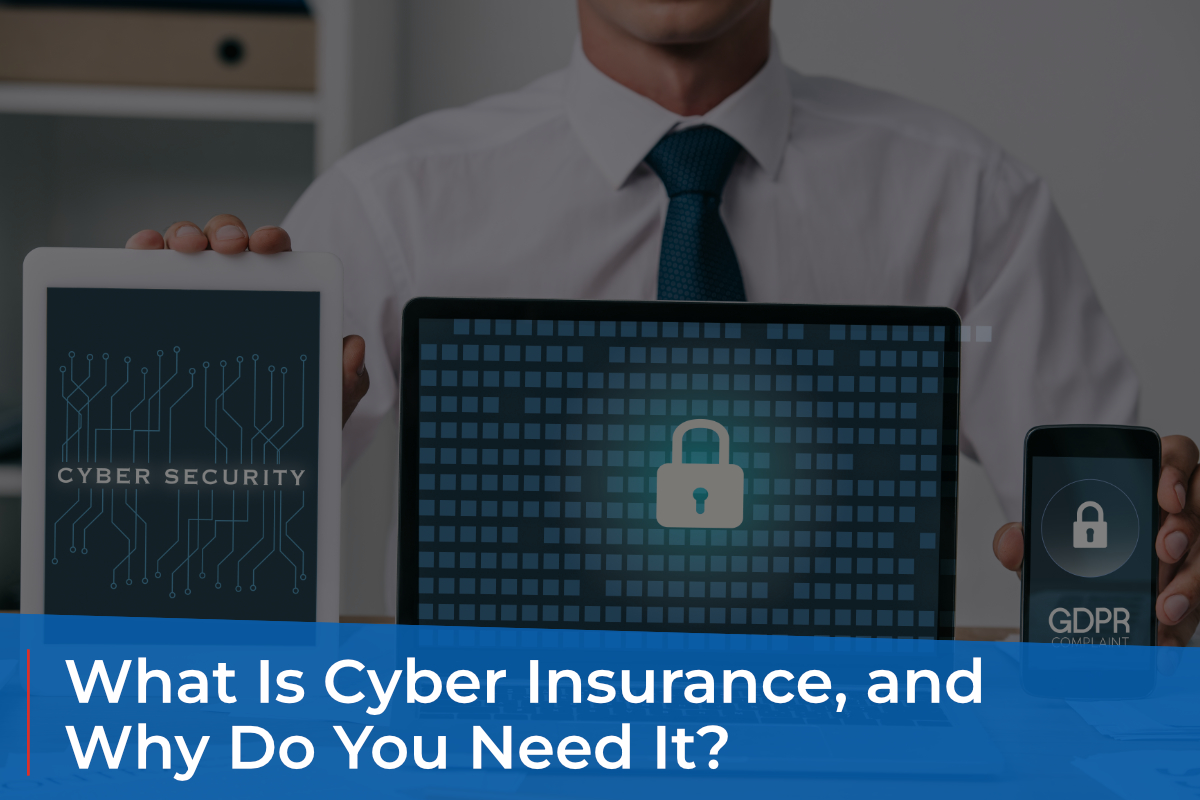Cybercrime is fast becoming a major threat to businesses all over the world, regardless of their size, making cyber insurance a necessity rather than a choice. However, the concept of cyber insurance is still fairly new and not many SMBs are aware of its benefits. The purpose of cyber insurance is to cover your business’ liability in case of cybercrime.
A data breach, for example, puts you at risk of lawsuits, makes you liable to customers and other parties whose data has been compromised. The financial aspect of such liabilities is covered by cyber insurance, making it easier for you to deal with them.
Why do you need cyber insurance?
Cyber insurance is often viewed as an additional cost by organizations. There are a number of reasons why they believe they do not need it.
Many larger organizations believe their cybersecurity measures are robust and they won’t be harmed by cybercrime, and even if they are harmed in a one-off cybercrime incident, they will still be able to discharge their liabilities and maintain their brand value despite the incident.
In contrast, SMBs think cybercriminals will target larger companies, so they do not need cyber insurance. As a matter of fact, smaller businesses are at greater risk–primarily because
Their IT infrastructure is less likely to be strengthened and staff is less likely to be trained to identify cyber threats, making them more vulnerable.
When they fall victim to cybercrime, they are less likely to recover their financial and brand health.
Whether your company is big or small, you need cyber insurance today.
Book a free cybersecurity consultation here.
What does it cover?
Cyber insurance, however, does not replace cybersecurity. It is important to remember that having cyber insurance does not mean you can be lax about cybersecurity. In the event that something slips through the cracks, your business will be protected by this buffer. A managed service provider can help you tighten your cybersecurity and prevent data breaches. Your MSP can also help you understand the IT risks that you need to be covered for as they are well versed in the IT industry. Additionally, they can help you select cyber insurance policies, in some cases even serving as insurance advisors and agents.
Among the elements covered by cyber insurance are legal expenses incurred as a result of cybercrime. Legal fees, expenses, and even any fines you may have to pay or financial settlements you have to make with your customers or third parties impacted by the incident are all included in this category. In addition to this, your cyber insurance may cover the following, depending on the coverage you choose.
Notification costs
All parties affected by a data breach must be notified. This involves reaching out to them individually and also through the press. A cyber insurance policy may cover these costs.
Restoration costs
In the aftermath of a cybercrime attack on your IT infrastructure, you will have to spend money restoring it. In order to retrieve the lost data and repair or replace the affected IT systems, there will be considerable costs involved.
Analysis costs
A forensic analysis of a data breach will help you determine the cause of the breach and prevent it from happening again. An investigation of this nature may be covered by cyber insurance.
Downtime costs
Revenue is lost when your business operations are halted, even temporarily, due to IT problems. Such downtime costs can be covered by cyber insurance.
Extortion money
Cybercriminals usually demand money as ransom or extortion in some cases of data theft, such as ransomware attacks. With ransomware attacks on the rise these days, it may be a good idea to choose a policy that covers this angle as well.
How much does cyber insurance typically cost?
Cyber insurance costs can range from $1000 a month to about a million dollars per year, depending on coverage and risk. What you should ask yourself is, how much can it cost you if you ignore cyber insurance? Your brand reputation, your customers, and your business could all be at risk. With cybercrime on the rise, cyber insurance is no longer merely a luxury for the big players. Any business, no matter how large or small, needs it.
What to expect when applying for cyber insurance
Prepare for in-depth questions about your security controls and risk management practices. Cyber insurers, for example, may want to know how you test for phishing and handle web content filtering and multi-factor authentication.
A variety of models and metrics are used by cyber insurers to evaluate cyber risk. There are some companies, such as AIG, that disclose their evaluation metrics. Other companies, such as Zurich, use a framework developed by the National Institute of Standards and Technology (NIST). The metrics and frameworks may vary, but the fundamentals are the same: solid, proactive cybersecurity risk controls.
Insurers look for common security controls, such as:
Administrative privileges
Access management
Employee behavior monitoring
Network segmentation
Malware defense
There is good news: you can implement these risk controls easily, making your business more “insurable” and reducing your cyber insurance costs.
Here are some best practices that can prove to cyber insurers that you are taking your cybersecurity seriously:
Automate password management – don’t use Excel spreadsheets for tracking passwords and credentials
Protect your IT systems by limiting privileged access. Instead of granting access for a long time, implement a least privilege strategy that grants privileges only for required activities
Make sure your privileged accounts are protected. Using access management software, rotate, monitor, and audit privileged account access
Ensure security by using multi-factor authentication. Confirming the identity of users and granting approval before granting access for privileged activities is essential
Make sure everyone is aware of cyber risks. Improve your employees’ cybersecurity awareness to protect your business from increasingly sophisticated social engineering and phishing attacks.
Does your cyber insurance provide the protection you need?
There is no doubt that cybercrime is becoming a major threat to businesses all over the world, regardless of their size. This makes cyber insurance a necessity rather than an option. A cyber insurance policy covers your business’ liability in the event of a cybercrime. Does your cyber insurance provide the protection you need? We can review your policy and let you know. Get in contact today.



